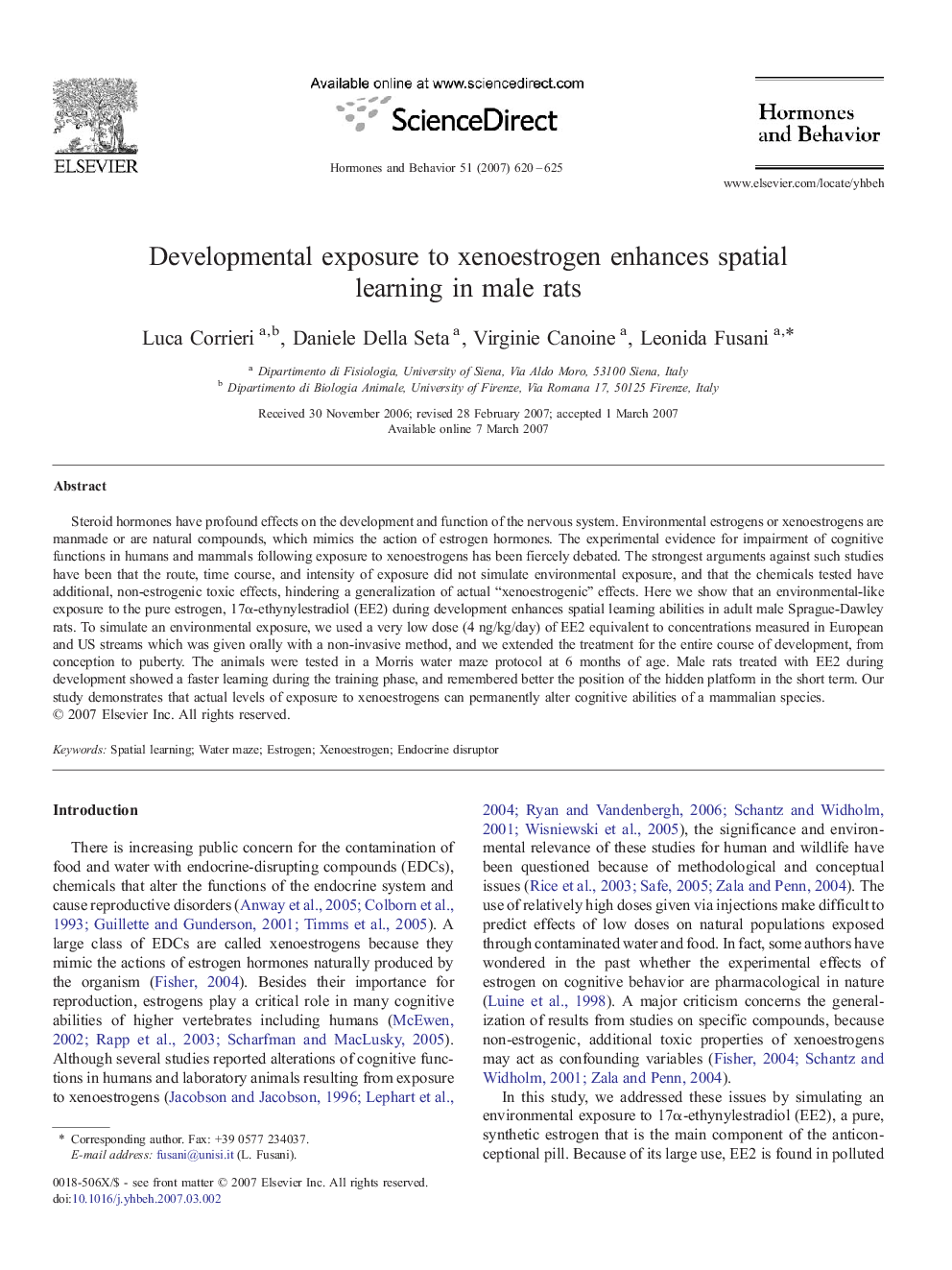| کد مقاله | کد نشریه | سال انتشار | مقاله انگلیسی | نسخه تمام متن |
|---|---|---|---|---|
| 323323 | 540552 | 2007 | 6 صفحه PDF | دانلود رایگان |

Steroid hormones have profound effects on the development and function of the nervous system. Environmental estrogens or xenoestrogens are manmade or are natural compounds, which mimics the action of estrogen hormones. The experimental evidence for impairment of cognitive functions in humans and mammals following exposure to xenoestrogens has been fiercely debated. The strongest arguments against such studies have been that the route, time course, and intensity of exposure did not simulate environmental exposure, and that the chemicals tested have additional, non-estrogenic toxic effects, hindering a generalization of actual “xenoestrogenic” effects. Here we show that an environmental-like exposure to the pure estrogen, 17α-ethynylestradiol (EE2) during development enhances spatial learning abilities in adult male Sprague-Dawley rats. To simulate an environmental exposure, we used a very low dose (4 ng/kg/day) of EE2 equivalent to concentrations measured in European and US streams which was given orally with a non-invasive method, and we extended the treatment for the entire course of development, from conception to puberty. The animals were tested in a Morris water maze protocol at 6 months of age. Male rats treated with EE2 during development showed a faster learning during the training phase, and remembered better the position of the hidden platform in the short term. Our study demonstrates that actual levels of exposure to xenoestrogens can permanently alter cognitive abilities of a mammalian species.
Journal: Hormones and Behavior - Volume 51, Issue 5, May 2007, Pages 620–625